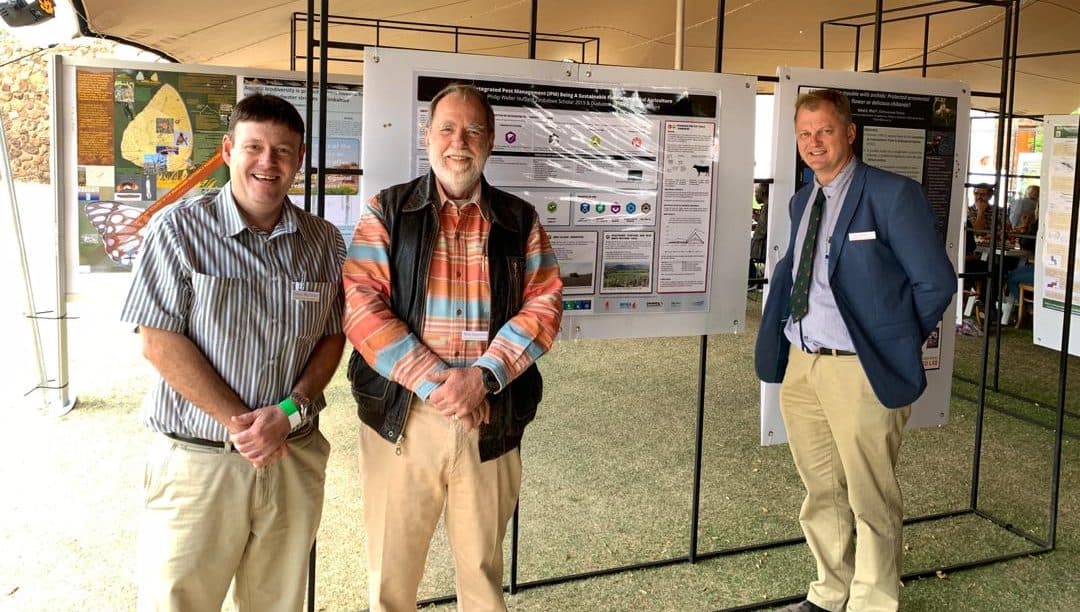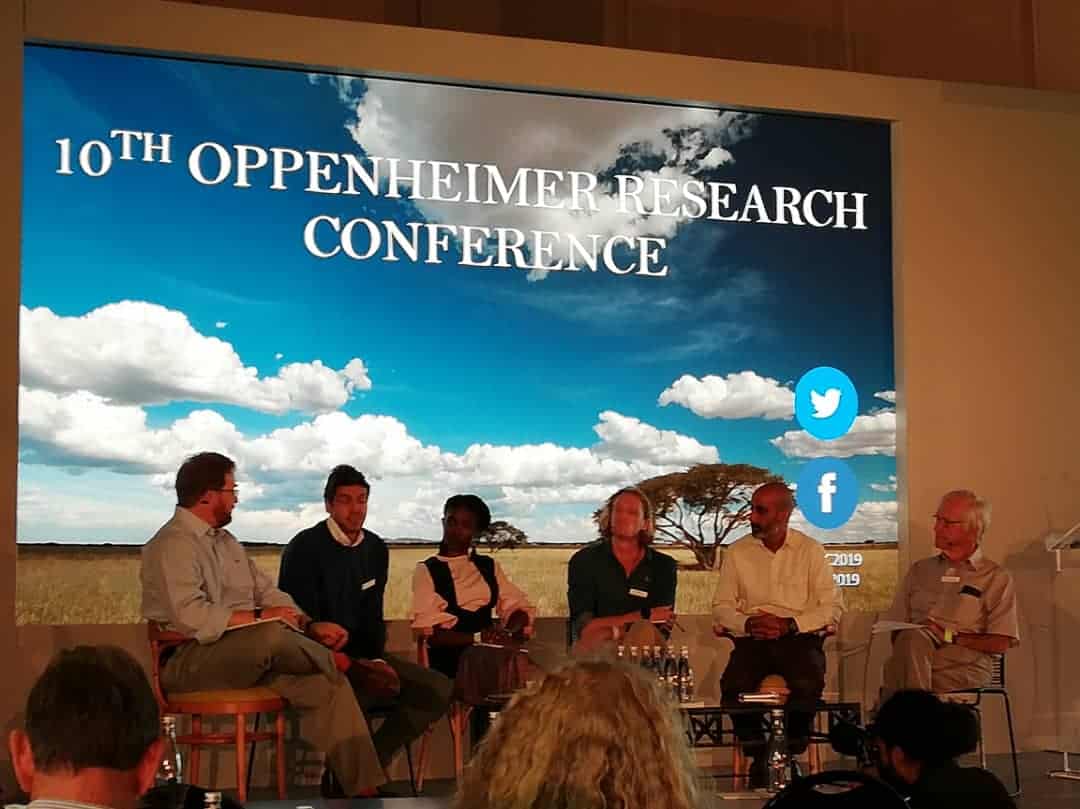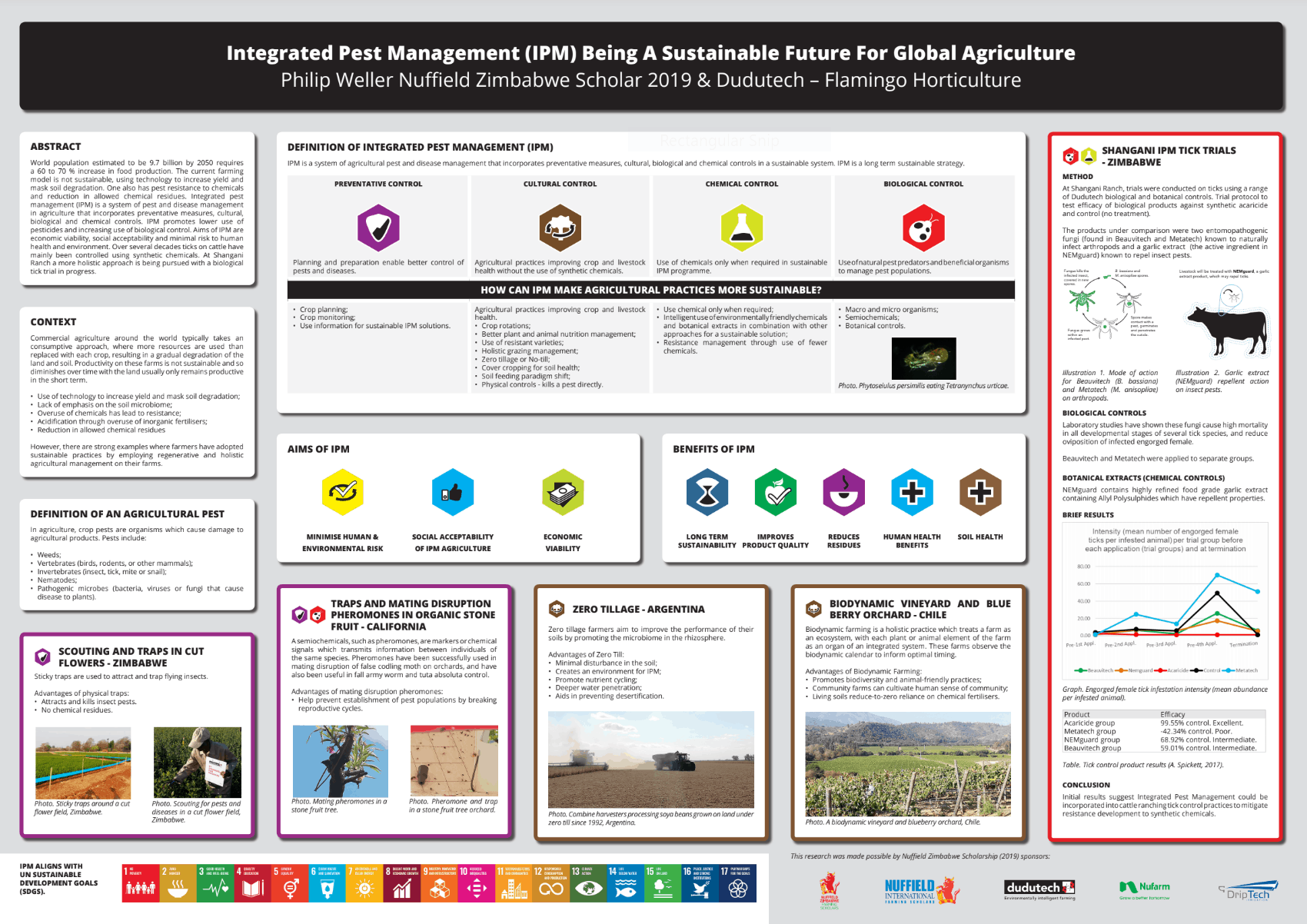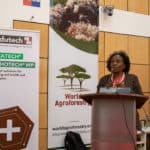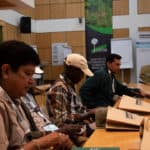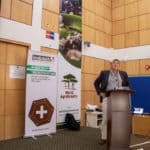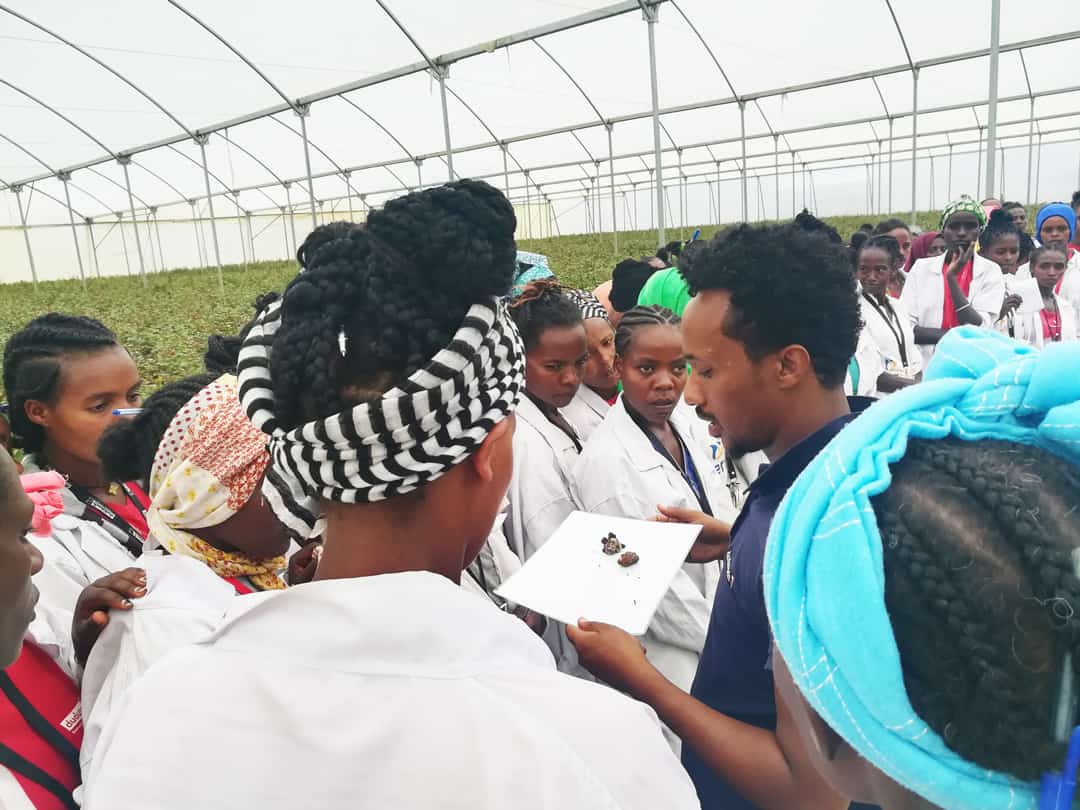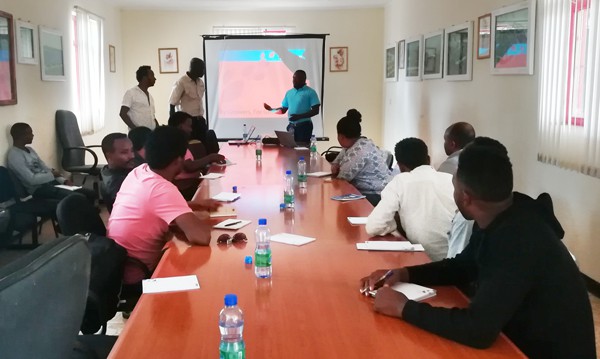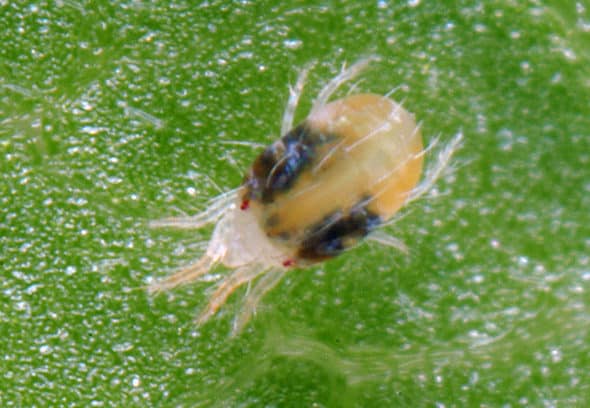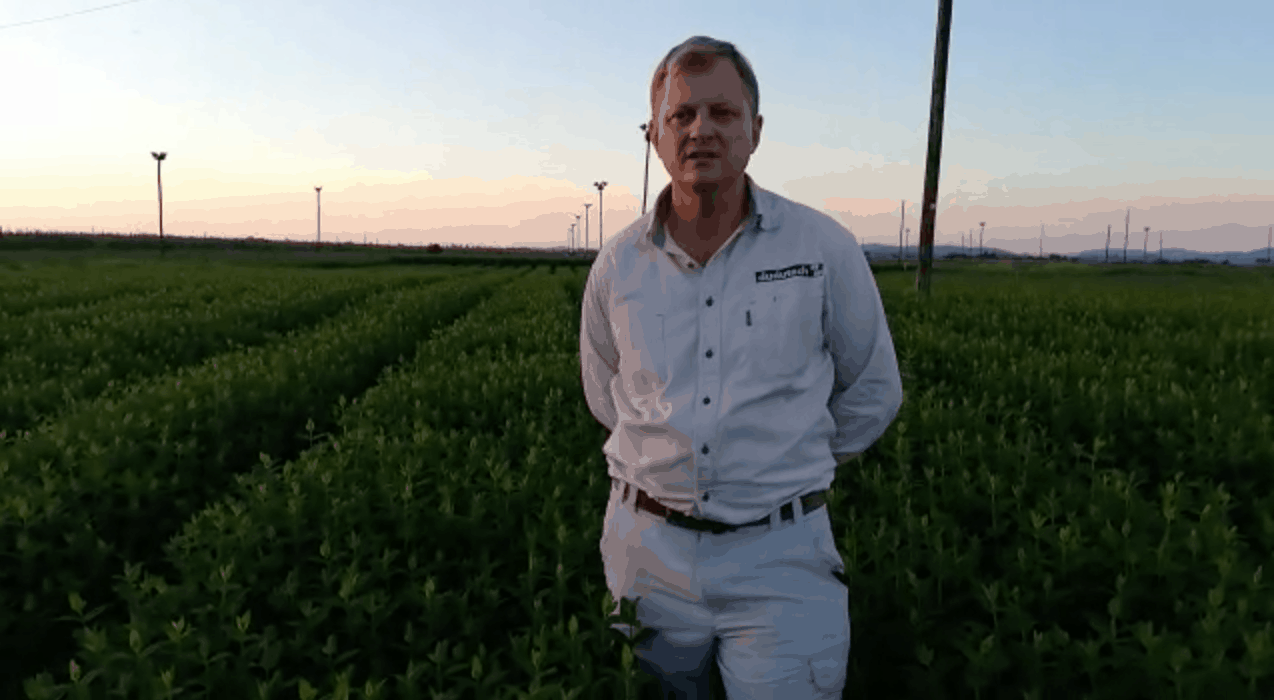
Phil Weller, Nuffield Scholar, in a field on his farm outside Harare, Zimbabwe.
Phil Weller, authorised Dudutech distributor for Zimbabwe, has been selected as a Nuffield International Farming Scholar for 2019. The prestigious global programme focuses on building personal capacity, propagating excellence in agriculture and driving thought leadership on local and international levels.
Since its establishment by Lord Nuffield in 1947, the scholarship has inducted 1,700 agriculturalists from around the world, and only 13 in 2019. The scholarship aims to develop leadership and expertise to keep the agriculture industry dynamic, competitive and at the service of society.
The programme is structured in three phases. The Contemporary Scholars Conference begins the journey in March, bringing together all 70 Nuffield Scholars from around the world for up to 10 days. Following that is the Global Focus Programme, in which the scholars will travel abroad to a country of interest for 7 weeks. According to Nuffield International, “scholars benefit from exposure to a broad range of agricultural systems, in very different political and social environments, whilst travelling in a close group of individuals of varying backgrounds during an intense programme.” The third and final part of the programme is the Individual Research Travels and Report, whereby the scholars travel to research their topic. Their 10,000-word report is then presented to a conference of peers, contributing to the global agricultural knowledge-base.
Nuffield International, the non-profit body which provides support and governance to the scholarship, has aligned with the UN Sustainable Development Goals, recognising the vital role agriculture plays in pursuing many of them. In doing so, Nuffield Scholars are brought to the front line to lead their industry towards a sustainable future all.
Dudutech is proud to be associated with Nuffield Scholar Phil Weller, who has decided to study “Integrated Pest Management (IPM) as the sustainable future for global agriculture,” which he affirmed in an interview. The research will focus on how IPM can make major global agricultural sectors more sustainable through the potential for the system to reduce industry reliance on chemical pesticides by increasing the use of biocontrols. Phil’s experience in the industry developed his view that “profit and sustainability go hand in hand and (IPM) is the key for the future.”
Weller said his IPM research aims to aid in addressing the global challenges of “residues on crops, resistance to chemicals and land pressure.” He said he hoped that “it will encourage farmers to look at agriculture in a more holistic manner with sustainability being the key.”
His personal ambition is to gain an up to date understanding of global trends in sustainable agriculture, agricultural policies and to broaden his professional network. He went on to say that he hoped his research would help to give back to Zimbabwe in terms of bringing forward the latest IPM technology.
Weller’s earlier studies saw papers published on papaya fertiliser trials and avocados. As a grower of cut flowers for the export market, Phil developed a deep interest in Integrated Pest Management (IPM) to help combat pest and disease in a sustainable, environmentally friendly way. He credits using IPM on Tonsberg Farm, his own growing operation in Zimbabwe, as a key to accessing foreign markets, where the regulations are steadily becoming more restrictive against chemical controls.
To finance their studies abroad, Nuffield Scholars seek investment from key businesses in relevant fields. Beside Dudutech (Kenya), Phil Weller has received investment from Nufarm (Australia), Drip-Tech (Zimbabwe) and Nuffield International. The investors form a network to support and disseminate the research done through the scholarship. The Nuffield Scholarship aligns well with Dudutech’s own emphasis on furthering an understanding of global crop sciences through education and research.
As a Nuffield Scholar, the potential understanding gained from Phil Weller’s research journey while participating in the scholarship has far reaching effects on the future of sustainable agriculture and for Dudutech. Follow this story as it develops on our social media channels www.facebook.com/dudutech.
To find out more about the Nuffield Scholarship, go to http://www.nuffieldinternational.org
